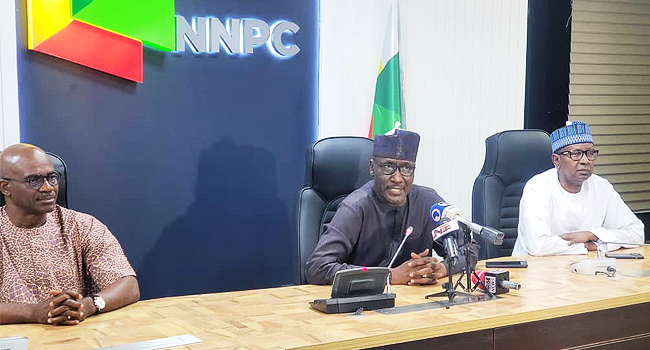Mele Kyari, the Group Chief Executive Officer of the Nigerian National Petroleum Company Limited has said that 10 to 15% of Nigerians are the only people benefitting from the fuel subsidy regime.
He said this during an interview on Channels Television on Thursday night. According to him, many Nigerians do not own cars, so they rely on public transportation.
Meanwhile, there are Nigerians who own three to four cars, as well as escort vehicles, which consume more fuel than ordinary Nigerians. He also said that there are fuel stations that never sold fuel at the previously regulated price of N195 per liter, especially outside city centers.
He said:
“There is nowhere you will find stations selling at regulated prices except for NNPC and a few others and many of the cars on the road are owned by people that are not using these cars for the purpose of transporting the mass of people. They are also not using it to transport people to their workplaces.
“The owners are mostly business leaders, people who have resources and ability. Then you have a marginal group of people, those who drive their cars to work.
“This is very reflective in the consumption of fuel. They are maybe 10 to 15% of the population taking the value of 100%, that is what we are dealing with.
“The effect only comes to the ordinary man because some of the transport means for the ordinary people are keke napeps and some of the small cars we are seeing around. These cars consume the least amount of fuel.
Kyari also noted that the increase in fuel pump prices drastically reduces the arbitrage environment the market has created. He highlighted the fact that Nigeria has an arbitrage environment. He said:
“Before this decision we took, fuel was selling for N195 per liter in Abuja, but just across the border, there is nowhere you have prices that are less than N500 per liter.”
Kyari said that Nigerian fuel is being sold in other African countries going as far as Sudan.
